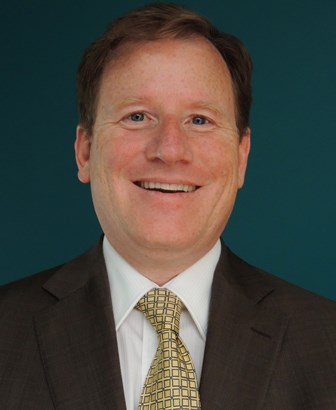- Home
- About Us
- The Team / Contact Us
- Books and Resources
- Privacy Policy
- Nonprofit Employer of Choice Award

The following excerpt is from Ripple Effect - Growing Your Business with Insurance and Philanthropy, one of Hilborn's  Civil Sector Press new releases.
Civil Sector Press new releases.
A 2010 study by Mackenzie Financial showed that only 25% of financial advisors bring up the topic of giving to charity with their clients, and that only 10% of clients initiate the discussion.
Advisors who don’t mention philanthropy to their clients give reasons like:
Unfortunately most of these concerns are unfounded and serve to keep a professional advisor from forming the type of insightful, understanding relationships that would actually help to grow and sustain their portfolio through unpredictable economic cycles.
“It’s none of my business / It’s too personal / It’s unprofessional”
Why would discussing charitable giving be too personal, when typical client discussions cover intensely private topics like births, deaths, marriage, divorce, illness, job loss or promotion, child-rearing and education, retirement planning, religious tithing and more?
A still-relevant 1999 report from the National Centre for Family Philanthropy (NCFP) a nonprofit organization in Washington D.C., concluded that, “Without exception, donors agree that philanthropy is no more personal than any other decisions that advisors help them make. Planning is about all the things you can do with your money. This is one of them. Raising questions of philanthropy does not imply a moral judgment on the advisor’s part. It is part of the advisor’s responsibility to ask all the questions relevant to a client’s interests.”
What you will gain from discussions including philanthropy
A survey conducted by the Gallup World Poll between 2006 and 2008 found that in 120 out of 136 countries, people who donated to charity in the past month reported greater satisfaction with life. This relationship emerged in poor and rich countries alike, and across all income groups. Across all 136 countries studied, donating to charity generated happiness equivalent to doubling their household income.
Many studies have shown that people who donate their money and time to charity have life expectancies that are 3-10 years longer than those who don’t! So by helping your clients fulfill their philanthropic dreams, chances are you’ll have them longer as a client, especially for those who give more in relation to the value of their assets.
Increased loyalty also helps smooth out negative emotions from your clients when markets go down or crash, which is prime time for your competitors to look to poach your clients. With a strong, personal bond to your clients, they are much more likely to trust you with suggestions on how to handle financial downturns, and turn their business over to someone else.
When you can help your clients feel great about their future, which includes the good they are doing by being philanthropic, you create deeper and better financial and emotional relationships with your clients. This will differ from the more simple transactional financial advice of many of your competitors. When you can help your clients find solutions that better meet all of their goals, they are much more likely to give you continuing business, and refer you to their friends and colleagues.
Bigger philanthropic decisions are often made on a family basis, due to family members being touched by the same things such as illness that runs in the family, common religious beliefs, or educational institutions and causes that family members have volunteered for and/or supported as a family unit. When you can develop a relationship with client families to help to facilitate gifts that have touched multiple members of the same family, and have creatively arranged for their gift to have the greatest possible effect, you have a better chance of retaining business from younger generations after your client passes away and the intergenerational transfer of wealth occurs.
In some cases, incorporating philanthropy into planning to achieve multiple client goals can become complex, including having clients create or change their Wills to direct how beneficiaries will receive inheritances, finding more effective ways to give while clients are alive, purchasing life insurance or insurance products, setting up family foundations, or using public trusts or foundations to facilitate donations. Implementing these solutions can involve large or small dollar amounts, and quite frankly may or may not end up being paid work for you. However, when you engage the other professionals such as accountants and lawyers, that are (or will be) connected to their client’s families, you are opening the door to more referrals through these new professional networks. Referrals are the easiest and best ways to grow any business and open doors that otherwise would have been closed to you.
Last but certainly not least, if you are a Canadian financial advisor and avoid the topic of giving to charity with your clients, you may inadvertently be avoiding a part of your basic professional obligations by not doing enough due diligence with them. For more information, read the Investment Funds Institute of Canada’s Fiduciary Duties and Financial Advisors: Frequently Asked Questions and Answers.[3]
As a founding partner of Bequest Insurance, Jack Bergmans is one of Canada’s leading experts in integrating insurance into financial, estate and legacy planning. Jack is a Certified Financial Planner and has been in the investment industry since 1996. As a licensed insurance broker he works with individuals and organizations providing independent financial, investment and retirement advice, and is also an estate planning and legacy giving specialist.
Marlena McCarthy has worked with charities since 1982 in marketing communications and fundraising. As Founding Partner and Fundraising and Communications Director of Bequest Insurance (www.bequestinsurance.ca), Marlena works with charities to help create income streams from gifts of life insurance and insurance products by creating simple yet gripping promotional materials.